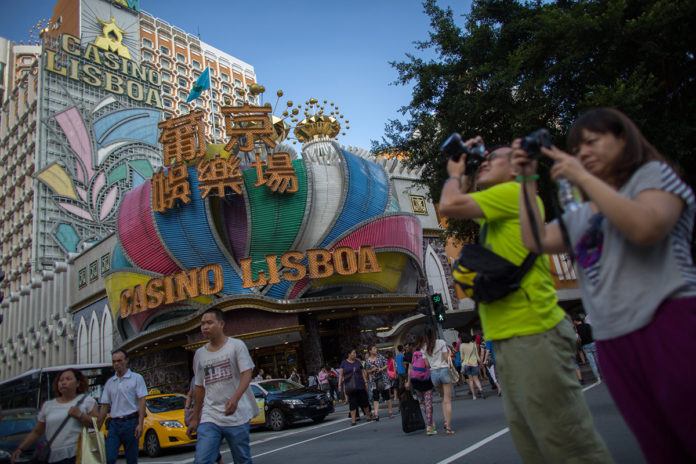The Dean of the Faculty of Social Science (FSS) of the University of Macau (UMAC), Professor Hao Yufan, has revealed that a tourism index will be rolled out as a reference for the MSAR Government – as well as the rest of society – apropos decision making for the city’s development of tourism and leisure.
The Centre of Macau Studies of the University of Macau jointly established the first Green Book of Macau yesterday with local scholars as well as academics from Mainland China. The book provides comprehensive analysis of the city’s current development of tourism and leisure as well as providing suggestions fors further improvement and development.
Professor Hao said the book will be launched every year, adding that preparations for next year’s book has already started.
Professor Lin Guangzhi, Director of the Institute for Social and Cultural Research, who is also the editor together with Professor Hao of the Green Book of Macau, perceived that the city already has a good foundation for the development of tourism and leisure.
Over the past year, Professor Lin said the scale of development had been rapid, with related facilities such as hotels increasing in number as well as the introduction of various festivals and activities.
“However, we also have quantity and quality problems,” said Professor Lin, such as the significant growth of the number of visitors to Macau leading to overloaded issues in a small city, as stated in the chapter written by Professor Lin.
Meanwhile, given persistent problems such as the numerous road constructions and delay of transportation infrastructure, Professor Lin said it was necessary for the government to improve management of the city.
“The development of travel and leisure should not only be [left] to the Secretary for Social Affairs and Culture,” noted Professor Lin. “The entire society should be involved.”
Nevertheless, in terms of long-term development, Professor Lin held a positive outlook.
Vice president Pang Chuan of the Macau University of Science and Technology (MUST), on the other hand, pointed out that most visitors travel to the city for reasons other than leisure.
In order to raise the number of visitors to the city for leisure, Pang noted the utilisation of the 85 square kilometres of territory granted in 2015 by the central government.
Pang also pointed out the importance of ensuring local residents’ quality of life as the city develops tourism, remarking that the city cannot be considered a World Centre of Tourism and Leisure if it fails to ensure residents’ quality of life.
Suggestions
Professor Lin listed some major suggestions for the better development of tourism and leisure in Macau.
The MUST professor noted in his report that the development of tourism and leisure involves a wide range of aspects such as the development of the city and tertiary education.
As such, the plan for development should be led by the MSAR Government rather than only being confined to the Secretary for Social Affairs and Culture and the city’s Tourism Office.
Secondly, Professor Lin believes that the participation of enterprises is limited.
He pointed out the importance of considering the co-ordination between the government, enterprises, citizens and tourists when drafting development plans, adding that the government could roll out policies to attract the involvement of enterprises to invent tourism products.
Given that the gaming industry occupied a significant position in Macau’s economy, Professor Lin said gaming should not be completely excluded from the planning of tourism development.
The MUST professor also suggested collaboration with other regions such as the Greater Bay Area in order to soften the problem of the city’s limited space.
The importance of scientific analysis as well as adequate arrangement to ensure use of the collaboration with other regions was important, too, he concluded.
























